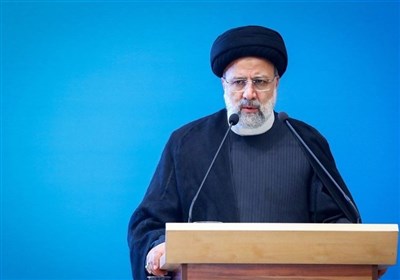French Election: Macron’s Ensemble Loses Parliamentary Majority
TEHRAN (Tasnim) – French President Emmanuel Macron lost control of the National Assembly in legislative elections after considerable gains by a newly formed left-wing alliance, and record wins by the far-right.
The result, announced in the early hours of Monday, threw French politics into turmoil, raising the prospect of a paralyzed legislature unless Macron is able to negotiate alliances with other parties, Al Jazeera reported.
Macron, 44, now also risks being distracted by domestic problems as he seeks to play a prominent role in putting an end to Russia’s invasion of Ukraine and as a key statesman in the European Union.
The president’s centrist Ensemble coalition will still be the biggest party in the next National Assembly. But with 245 seats, according to full interior ministry results, it is well short of the 289 seats needed for a majority in the 577-member chamber.
A broad left-wing alliance, NUPES, united behind left-wing veteran Jean-Luc Melenchon, was set to be the most prominent opposition group, while far-right leader Marine Le Pen’s National Rally party scored a ten-fold increase and will send 89 legislators to the new parliament.
“This situation constitutes a risk for our country, given the challenges that we have to confront,” Prime Minister Elisabeth Borne said in a televised statement.
“We will work from tomorrow to build a working majority,” she said.
Finance Minister Bruno Le Maire called the outcome a “democratic shock” and promised to reach out to all pro-European parties to help govern the country.
The result severely tarnished Macron’s April presidential election victory when he defeated the far-right to become the first French president to win a second term in more than two decades. It also raises questions over Macron’s ability to deliver on his second-term agenda, including tax cuts, welfare reform and raising the retirement age.
“It’s a turning point for his image of invincibility,” said Bruno Cautres, a researcher at the Centre for Political Research of Sciences Po.
There is now no set script in France for how things will unfold. The last time a newly elected president failed to get an outright majority in parliamentary elections was in 1988.
Macron could eventually call a snap election if legislative gridlock ensues.
Le Monde daily headlined on its website: “Macron faces the risk of political paralysis,” while the Le Figaro daily said the results raised the spectre of a “stillborn new mandate”.
Melenchon of the NUPES alliance called the outcome “totally unexpected”.
“The rout of the presidential party is complete and no clear majority is in sight,” he told cheering supporters.
“France has spoken and, it must be said, with an insufficient voice because the level of abstention is still much too high, which means that a large part of France does not know where to turn.”
Melenchon’s NUPES alliance campaigned on freezing the prices of essential goods, lowering the retirement age, capping inheritance, and banning companies that pay dividends from firing workers. Melenchon also called for disobedience towards the EU.
Le Pen, whose party won its biggest-ever representation in the assembly, said she will seek to unite all “patriots on both the right and the left wing”.
“The Macron adventure has reached its end,” she said. “We will incarnate a strong opposition.”
Jordan Bardella, interim head of the National Rally, called the result “a big breakthrough”.
“It’s Emmanuel Macron’s own arrogance, his own contempt for the French people and his own impotence on security and purchasing power that has made him a minority president,” he said.
Macron’s ability to pursue further reform of the euro zone’s second-biggest economy now hinges on winning support for his policies from moderates outside his alliance on both the right and left.
“There are moderates on the benches, on the right, on the left. There are moderate Socialists and there are people on the right who, perhaps, on legislation, will be on our side,” Government Spokeswoman Olivia Gregoire said.
Macron and his party must now decide whether to seek an alliance with the conservative Les Republicains, who came fourth with 61 seats, or run a minority government that will have to negotiate bills with other parties on a case-by-case basis.
The president of Les Republicains, Christian Jacob, however made clear there would be no easy partnership, saying his party intended to “stay in opposition”.
There could now potentially be weeks of political deadlock as the president seeks to reach out to new parties.
In another blow to Macron, key ministers standing for election were set to lose their jobs under a convention that they should resign if they fail to win seats.
Health Minister Brigitte Bourguignon, Maritime Minister Justine Benin and Environment Minister Amelie de Montchalin – a pillar of Macron’s administration in the last years – all lost and will now exit the government.
Two other close Macron allies, Parliament Speaker Richard Ferrand and former Interior Minister Christophe Castaner, both acknowledged defeat in the fight for their seats.
In a rare spot of good news for the president, Europe Minister Clement Beaune and Public Service Minister Stanislas Guerini – both young pillars of his party – won tight battles for their seats.
On the left, Rachel Keke, a former cleaning lady who campaigned for better working conditions at her hotel, was also elected, defeating Macron’s former Sports Minister Roxana Maracineanu.
Turnout was low, with the abstention rate recorded at 53.77 percent, according to the interior ministry, higher than the first round but not beating the record-worst turnout of 2017.






